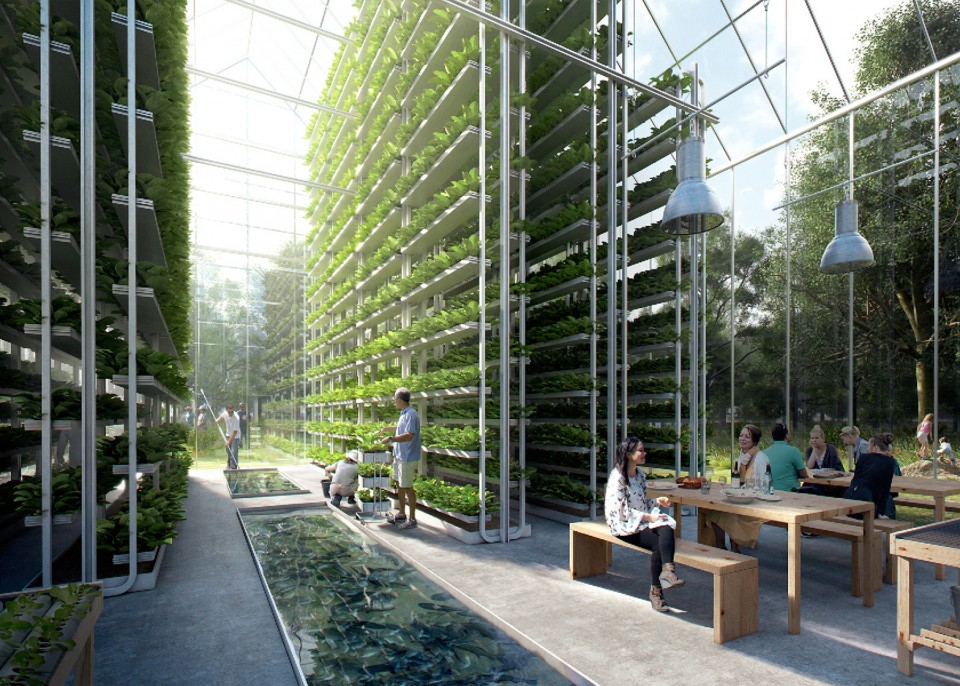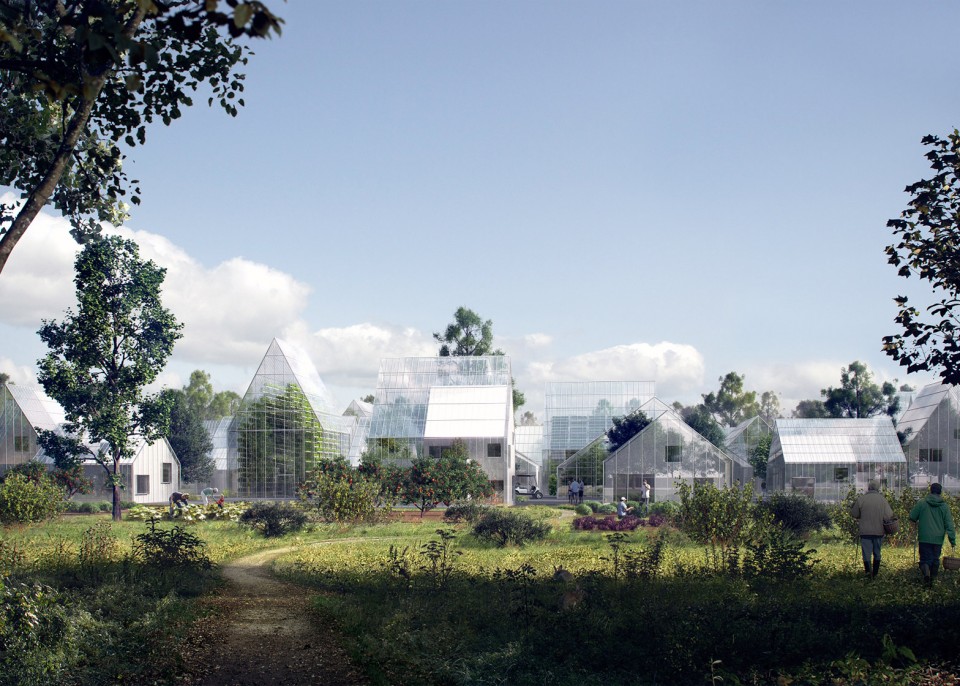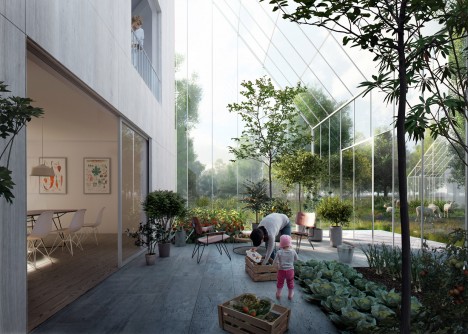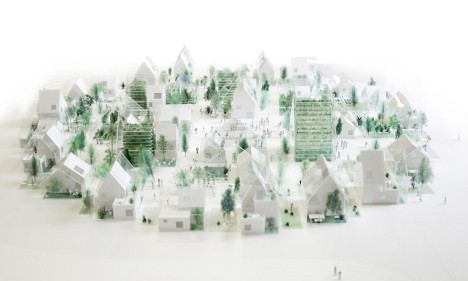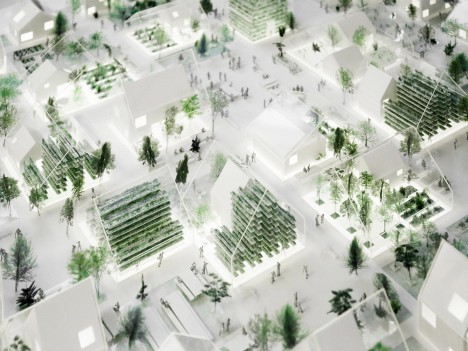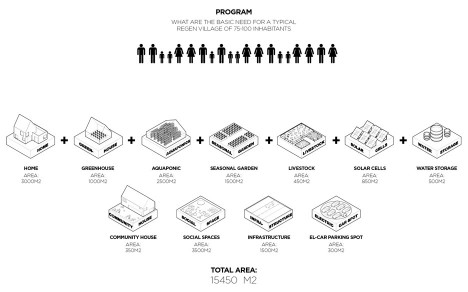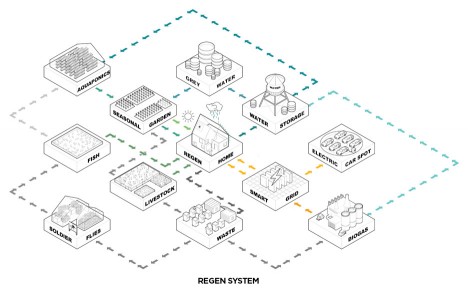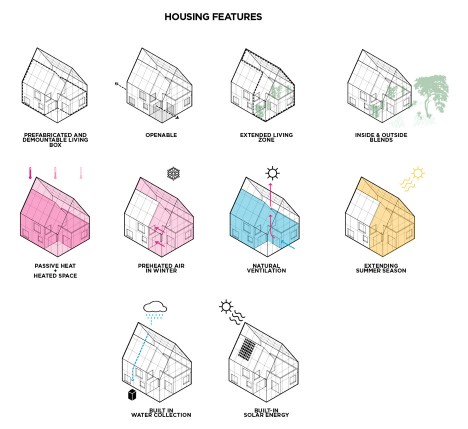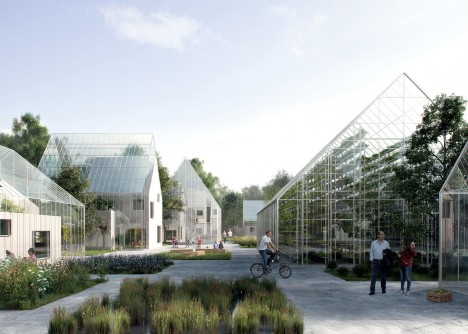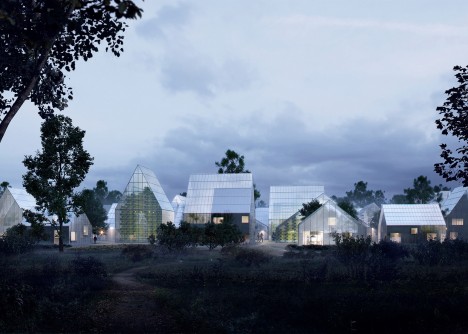Presented at the 2016 Venice Architecture Bienalle, these new communities are designed to be entirely self-reliant, recycling their own waste, generating their own energy and producing their own food. Urban, suburban and rural strategies are combined in fresh ways that could lead to a new paradigm for sustainable living.
Dubbed ReGen by its creators at EFFEKT, this new self-sustaining community typology grew out of a Stanford University Paper. Thanks to the backing of entrepreneurs, the first pilot is set to launch in The Netherlands this summer with others coming soon to Sweden, Norway, Denmark, Germany and planned for China and Africa.
Each village features combinations of homes, greenhouses and public buildings, interconnecting vertical farming efforts with everyday living. Like a dome-free version of some retrofuturistic 1960s vision, the idea is that each village unit is effectively self-contained, able to thrive off the grid without polluting or depending on outside resources.
Unlike other Utopian schemes, however, a great deal of design, science, engineering and money is going into making these work. The housing and community layouts reflect new urbanist sensibilities (such as walkability and density) as well as ruralist traditions (agriculture and access to nature).
Integrated solar power systems provide energy for heating, cooling and electric cars. Community participants share responsibility for water and waste management systems. Fruits and vegetable are grown individually as well as communally. Various housing types are offered, each with adaptable modularity designed around seasonal energy savings and human comfort factors.
“Our modern lifestyle is utterly unsustainable and this calls for more resilient solutions for the future,” explained EFFEKT partner Sinus Lynge. “The technology already exists, it is just a matter of applying science into the architecture of everyday life. ReGen Villages is engineering and facilitating the development of off-grid, integrated and resilient neighbourhoods that power and feed self-reliant families around the world. The time has come to redefine residential real-estate development for the next three billion people coming to the planet.”
